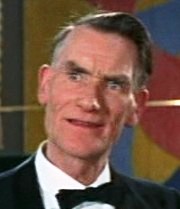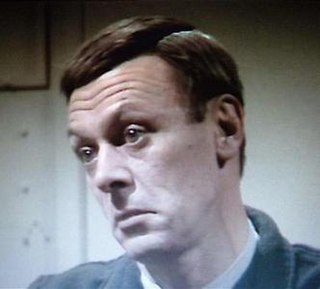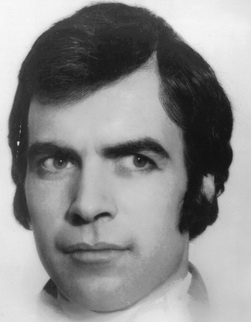Related Research Articles
The Gorbals is an area in the city of Glasgow, Scotland, and former burgh, on the south bank of the River Clyde. By the late 19th century, it had become densely populated; rural migrants and immigrants were attracted by the new industries and employment opportunities of Glasgow. At its peak, during the 1930s, the wider Gorbals district had swollen in population to an estimated 90,000 residents, giving the area a very high population density of around 100,000 per sq. mi. (40,000/km2). Redevelopment after WWII has taken many turns, and the area's population is substantially smaller today. The Gorbals was also home to 16 high rise flat blocks; only six are standing as of 2024, and two of them are set to come down some point this year.

The Edinburgh Festival Fringe is the world's largest performance arts festival, which in 2019 spanned 25 days and featured more than 59,600 performances of 3,841 different shows in 322 venues. Established in 1947 as an alternative to the Edinburgh International Festival, it takes place in Edinburgh every August. The Edinburgh Festival Fringe has become a world-leading celebration of arts and culture, surpassed only by the Olympics and the World Cup in terms of global ticketed events. As an event it "has done more to place Edinburgh in the forefront of world cities than anything else" according to historian and former chairman of the board, Michael Dale.
The Scottish Renaissance was a mainly literary movement of the early to mid-20th century that can be seen as the Scottish version of modernism. It is sometimes referred to as the Scottish literary renaissance, although its influence went beyond literature into music, visual arts, and politics. The writers and artists of the Scottish Renaissance displayed a profound interest in both modern philosophy and technology, as well as incorporating folk influences, and a strong concern for the fate of Scotland's declining languages.

John Duncan Macrae was one of the leading Scottish actors of his generation. He worked mainly as a stage actor and also made five television appearances and seventeen films.

Adam Russell Hunter was a Scottish television, stage and film actor. He played Lonely in the TV thriller series Callan, starring Edward Woodward, and shop steward Harry in the Yorkshire Television sitcom The Gaffer (1981–1983) with Bill Maynard. He made guest appearances in television series such as The Sweeney, Doctor Who, Taggart, A Touch of Frost, The Bill and The Return of Sherlock Holmes in The Adventure of Silver Blaze.

The Citizens Theatre, in what was the Royal Princess's Theatre, is the creation of James Bridie and is based in Glasgow, Scotland as a principal producing theatre. The theatre includes a 500-seat Main Auditorium, and has also included various studio theatres over time.
Marjorie Jessica Sutherland Thomson was a Scottish film, television and theatre actress. She is best known as a cast regular in the hit TV series Take the High Road from 1980 to 1995. In the programme, she played local matriarch Grace Lachlan, one of several "strong women characters (who) provided a focus". Series creator Don Houghton praised Thomson and her co-star Eileen McCallum for their clarity as speakers of the Scots dialect, an essential attribute of their respective roles in the programme.
Robert McLellan OBE (1907–1985) was a Scottish Renaissance dramatist, writer and poet and a leading figure in the twentieth century movement to recover Scotland’s distinctive theatrical traditions. He found popular success with plays and stories written in his native Scots tongue and is regarded, alongside William Lorimer, as one of the most important modern exponents of fine prose in the language.

John Cairney was a Scottish stage, film and television actor who found fame through his one-man shows on Robert Burns, Robert Louis Stevenson, Robert Service, Charles Rennie Mackintosh and William McGonagall.

Theatre in Scotland refers to the history of the performing arts in Scotland, or those written, acted and produced by Scots. Scottish theatre generally falls into the Western theatre tradition, although many performances and plays have investigated other cultural areas. The main influences are from North America, England, Ireland and from Continental Europe. Scotland's theatrical arts were generally linked to the broader traditions of Scottish and English-language literature and to British and Irish theatre, American literature and theatrical artists. As a result of mass migration, both to and from Scotland, in the modern period, Scottish literature has been introduced to a global audience, and has also created an increasingly multicultural Scottish theatre.
Ena Lamont Stewart was a Scottish playwright.
Robert Trotter was a Scottish actor, director, and photographer.

Literature in modern Scotland is literature written in Scotland, or by Scottish writers, since the beginning of the twentieth century. It includes literature written in English, Scottish Gaelic and Scots in forms including poetry, novels, drama and the short story.
Mary Stewart is a five-act play written in Scots by the Scottish playwright Robert McLellan and produced in Glasgow in 1951 by the Citizens Theatre. The next production of the play took place in August 2014 at the Edinburgh Fringe, performed by Theatre Alba. Mary Stewart follows the life of the eponymous Mary, Queen of Scots.
The 1947 Edinburgh Festival Fringe was the first edition of what would become the world's largest arts festival, the Edinburgh Festival Fringe.
The Gateway Theatre was a Category C listed building in Edinburgh, Scotland, situated on Elm Row at the top of Leith Walk.
The 1948 Edinburgh Festival Fringe was the second edition of what would become the world's largest arts festival, the Edinburgh Festival Fringe. It was in this year the word "Fringe" is commonly accepted as having first been associated with the event, after it was used by an Edinburgh Evening News critic. The term would come to define the event, and spawn the genre of fringe theatre. It was, however, still several years before it became common parlance in connection with the event or theatre in general, and also some time before any formal organisation of the event took place.
The Palladium Theatre was a theatre at East Fountainbridge in Edinburgh, Scotland.
Ida Schuster was a Scottish theatre, radio and television actress, theatre director, and a leading figure in Glasgow's 20th-century Jewish theatre community.
Wildcat Stage Productions was an influential left-wing theatre and music production company based in Glasgow. Founded in 1978 as a spin-off from the 7:84 Company, it formed a key part of the Scottish touring theatre network for the next 20 years, creating more than 80 shows and giving many thousands of performances across Scotland, the UK and internationally. The company was named after the term for unofficial industrial action, excluding the word “theatre” from its name to avoid middle-class or bourgeois associations.
References
- 1 2 3 4 5 6 7 Hill, John (February 1978). "Glasgow Unity Theatre". New Edinburgh Review. 40 (A Political Scottish Culture?): 27–31.
- 1 2 Glasgow Unity Theatre (University of Glasgow) accessed 5 July 2009
- ↑ The Gorbals Story (1950) ( The New York Times ) accessed 5 July 2009
- 1 2 Moffatt 1978, p. 15.
- ↑ Moffatt 1978, p. 19.
- ↑ Scottish People's Theatre: Plays by Glasgow Unity Writers (Association for Scottish Literary Studies, 2007) ISBN 978-0-948877-79-7